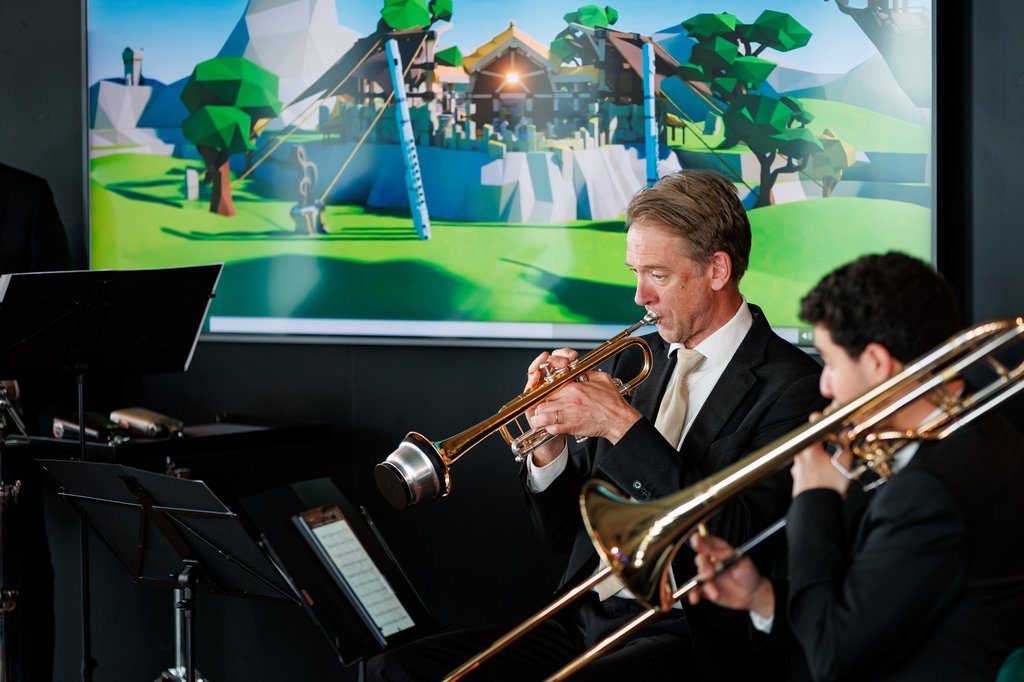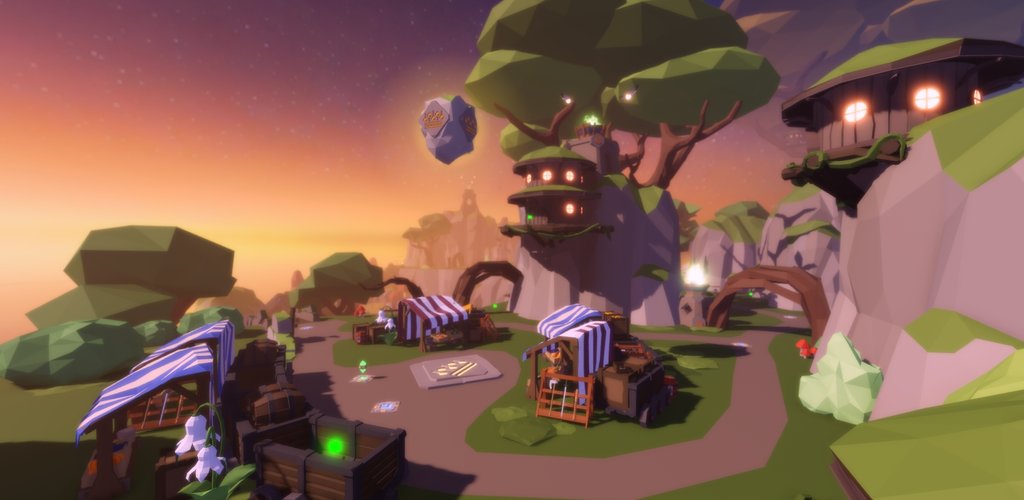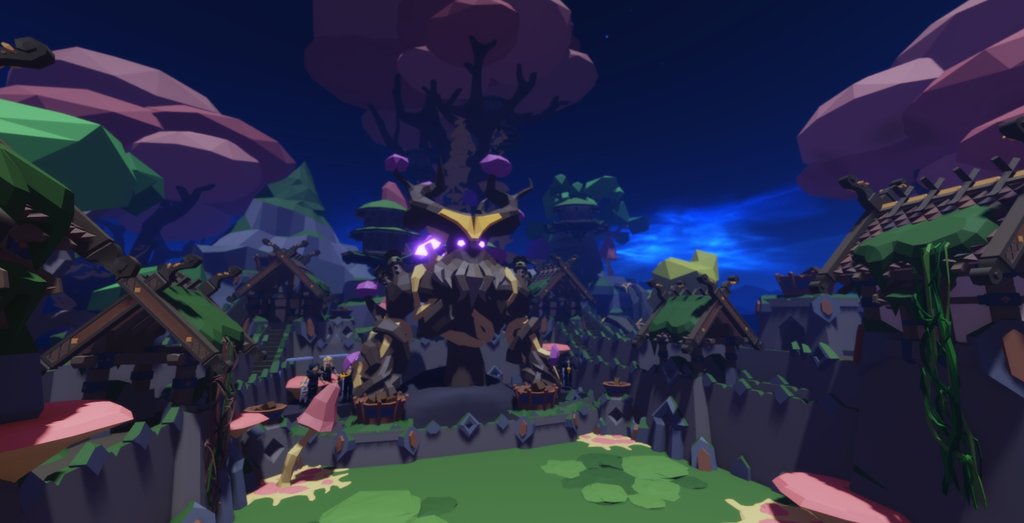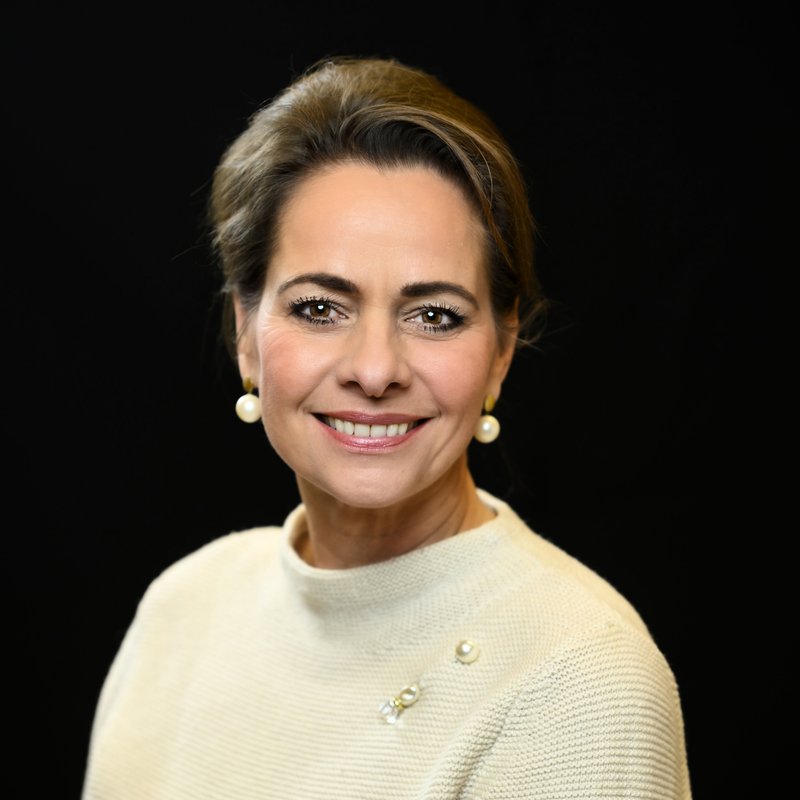Wed, Jun 4, 2025
In Final Score – the Music Game, the player goes through five different worlds that each have lots and lots of music. All of it was played and recorded by the Royal Concertgebouw Orchestra. But you might want to know which pieces are playing when – and why.

Final Score – the Music Game is a multiplayer game on the Roblox platform, developed in collaboration with the ELJA Foundation and Accenture Song. To help depict the game’s various worlds and situations, we selected excerpts from hundreds of recordings of timeless classical pieces, written by some of the most important composers who ever lived. You’ll hear melodious symphonies from the early nineteenth century (Mozart, Beethoven, Mendelssohn) and some wild-sounding pieces from the twentieth century (Debussy, Bartók, Stravinsky). What pieces do you hear while you’re playing the game?
In the Lobby
The game starts in the lobby. You hear fragments from two famous early-nineteenth-century symphonies, Ludwig van Beethoven’s Sixth Symphony (also called the ‘Pastoral’) and Felix Mendelssohn’s Fourth (‘Italian’) Symphony. Beethoven called the first movement of his Sixth Symphony ‘Awakening of cheerful feelings on arrival in the countryside’. It sounds like you’re escaping from the daily grind at last, taking off on a new path, down a country lane! The sunny opening of Mendelssohn’s ‘Italian’ Symphony has the same mood, but with more energy, as if you’re skipping though the game.
You might also hear the cheerful introduction to Beethoven’s Eighth Symphony, and the light-hearted Overture that opens the opera Het pand der goden (The Pledge of the Gods) by the Surinamese composer Johannes Nicolaas Helstone. In 2024, the Concertgebouw Orchestra gave the first performance of this opera since 1906.
In Harmony Farms
Harmony Farms is a world of grassy green meadows, where the farmers sing to their crops to help them grow. But now the Ratcatcher and the gang of rats under his spell have seized power. Their distorted melodies have got the crop fields totally confused and the plants don’t know which way to grow! By defeating the Ratcatcher and putting the melodies right, you’ll liberate the farmers’ orchestra and restore the happy song that nourishes the realm.
The sound of Harmony Farms is the colourful music of Claude Debussy, an extremely innovative French composer who lived around 1900. By the time you start to play, you can use an energy boost, and you get it in the form of ‘Fêtes’ (Parties), the second movement of his Nocturnes for Orchestra, dazzling music that dances in every direction, from exotic to heroic.
Once you’ve penetrated deeper into this world, you hear more music by Debussy: Prelude to the Afternoon of a Faun. It’s languid, sensual music in which time seems to stand still. When you take more dangerous paths or encounter enemies, or if you get to the boss fight, you hear music from Images. It’s lively, suspenseful and a bit mischievous. If you can beat the Ratcatcher, then you’ll keep hearing this exuberant music. If you don’t, then you’ll hear the dark side of Debussy: ‘Nuages’ (‘Clouds’) from his Nocturnes or a fragment from The Martyrdom of Saint Sebastian.
Fort Issimo
Here, deep underneath volcanic caves, dwarves once forged the instruments for the orchestra, their movements perfectly synchronised with the others. Now their forges aren’t working right. The Brass Forger (Titan of Time and Flame), has lost his rhythm, and the workers can’t find their groove. Your mission is to get the forge back up to speed, and get the percussion orchestra playing in time again.
A world of desolate mountains and fire-spewing volcanoes goes with intense music, including lots of great brass sounds, sometimes bursting at the seams. There’s music by Richard Wagner, the German composer of epic operas about gods, evil dwarves and heroic female warriors. And by Anton Bruckner, a Wagner fan from Austria who wrote some magnificent symphonies.
As you set out searching for adventure in this first world, you hear fragments of music like Bruckner’s First and Third Symphonies, and ‘Siegfried’s Rhine Journey’ from Wagner’s opera Twilight of the Gods. When there are challenges to be overcome, you’ll get encouragement from the heroic sounds of Bruckner’s Fourth or the Overture to Wagner’s opera Rienzi. You’ll also get some musical support when you have to go to battle. If you succeed in your mission, there will be celebration all round, and you’ll hear the Finale from Bruckner’s Sixth or more of the Rienzi Overture. If you’ve failed, alas, you’ll hear ‘Siegfried’s Death’ from Twilight of the Gods or ‘In the Greenhouse’ from Wagner’s Wesendonck Songs.

Mt. Mystic Möll
High above the clouds, the Misty Monks sing the scales that keep the world in balance: major scales for happiness, minor ones for sadness. But their protector, the Moll Titan, has gone deaf! His harmonies have been silenced, and now the monks’ scales sound like chaos. Put the mountain peaks back into harmony and liberate the orchestra, to restore the balance between light and dark notes.
You’ll hear the sun coming up in ‘Lever du jour’ (Daybreak) from Daphnis and Chloé by the French composer and master orchestrator Maurice Ravel. Mount Mystic Möll’s serene, mystical mood shines through in Debussy’s La mer (The Sea) and Béla Bartók’s Concerto for Orchestra, sometimes undulating dreamily, sometimes tumultuous and full of activity. In Bartók’s music, folk melodies and unusual rhythms tumble over each other. You’ll also hear his Music for Strings, Percussion and Celesta, in which melodies seem to cautiously creep around their own shadows.
If you win, you’ll receive a hero’s welcome, to the strains of Ravel’s Valses nobles et sentimentales , or a Hungarian dance by Bartók. If not, you’ll hear a different excerpt from Bartók’s Concerto for Orchestra, or mournful music by another Hungarian composer (and a friend of Richard Wagner’s), Franz Liszt.
Aria Tundra
In an icy, frozen world of bells and drums, the holy Moonsap Tree sets the rhythm of the dance. But the Tree Yeti has an obsessive thirst for drinks made from the Moonnut, and drums randomly all over, throwing the realm into chaos. The feasting grinds to a halt when the Yeti’s minions – mini-yeti's and ice golems – steal the Moonsap fruit to make his drinks. As a player, your mission is to calm the Tree Yeti, defeat his icy gang and give the percussion orchestra their sacred rhythm back.
This world was inspired by Pyotr Tchaikovsky’s music to The Nutcracker, music that’s been popular all over for 130 years. One catchy tune after another passes by, and the different dances are a perfect match with the colourful characters who inhabit Aria Tundra.

Sporchestra Woods
Once up on a time, the mycelial network of Sporchestra brought forth the purest harmonies in the realm, and connected all the notes in nature with each other. Now corrupt spores have infected the great guard Trent, and his song has degenerated into chaos.
In this fungal world full of toadstool guards and spooky spores, you’ll hear fragments from the Serenade No. 10, nicknamed 'Gran partita', by Wolfgang Amadeus Mozart. It’s the oldest music in the entire game, but if there’s one composer whose music is immortal, it’s Mozart. Even in the eighteenth century, his music touched the hearts of people of all ages and backgrounds, and it still has hit potential 250 years on.
Players who make it to Sporchestra Woods must cleanse the forest and get the mouldy melodies back into tune. Once they liberate the harmonic orchestra, the last missing piece of the Grand Ensemble, then the orchestra is complete!
Listening on your own
You can listen to the music from Final Score without playing the game. Of course it sounds best during a live concert by the Concertgebouw Orchestra, but you can also stream recordings yourself. Below you’ll find the Spotify and Apple Music playlists with all the pieces mentioned above. If you still want to go on an adventure and play the game, you can use this link to play Final Score on Roblox.
